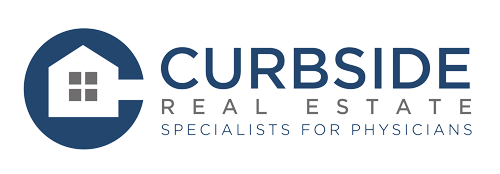Does student debt affect affordability?

Physician home loans are designed specifically for medical professionals, including physicians, dentists, and veterinarians. These loans offer several benefits, including little or no down payment, no mortgage insurance, and competitive interest rates. However, medical professionals who are burdened with student loan debt may face additional challenges when it comes to qualifying for a physician home loan.
In this article, we’ll explore how student loans impact affordability for physician home loans and what medical professionals can do to improve their chances of qualifying.
The Impact of Student Loans on Affordability
Student loan debt can have a significant impact on a medical professional’s ability to qualify for a physician home loan. This is because lenders take into account a borrower’s debt-to-income (DTI) ratio when determining eligibility for a mortgage. The DTI ratio is a measure of a borrower’s monthly debt payments relative to their monthly income. A higher DTI ratio indicates a higher level of debt relative to income, which can make it more difficult to qualify for a mortgage.
Medical professionals often have higher levels of student loan debt than the average borrower. According to the Association of American Medical Colleges, the median amount of student loan debt for medical school graduates in 2020 was $200,000. This level of debt can make it more challenging to qualify for a physician home loan, as it can impact a borrower’s DTI ratio.
For example, let’s say a physician has a monthly income of $10,000 and a monthly student loan payment of $2,000. Their DTI ratio would be 20%, which is relatively high. If they were to apply for a physician home loan with a monthly payment of $3,000, their DTI ratio would increase to 50%, which is well above the typical threshold for mortgage approval.
Improving Affordability for Physician Home Loans
While student loan debt can make it more challenging to qualify for a physician home loan, there are steps that medical professionals can take to improve their chances of approval.
- Improve Credit Score: One of the best ways to improve eligibility for any loan, including physician home loans, is to improve one’s credit score. A high credit score shows lenders that a borrower is responsible with credit and is likely to make payments on time. This can result in lower interest rates, more favorable terms, and a higher likelihood of approval.
- Refinance Student Loans: Refinancing student loans is a great way to lower monthly payments and reduce the overall amount of debt. Refinancing student loans can also improve a borrower’s DTI ratio, as it can lower the monthly payment and the overall debt burden.
- Increase Income: Medical professionals may be able to improve their eligibility for a physician home loan by increasing their income. This can be done by taking on additional shifts, taking on a part-time job, or pursuing advanced education or training that can lead to a higher paying position.
- Work with a Lender that Understands Medical Professionals: Working with a lender that specializes in physician home loans can be advantageous for medical professionals. These lenders understand the unique financial situations of medical professionals and may be more willing to work with borrowers to find a loan that meets their needs.
- Consider an FHA Loan: If a borrower is unable to qualify for a physician home loan, they may consider an FHA loan, which is backed by the Federal Housing Administration. FHA loans typically have more lenient eligibility requirements, including a higher DTI ratio. However, they also require mortgage insurance, which can be costly.
Conclusion
Student loans can have a significant impact on a medical professional’s home affordability. However, by taking steps to improve their credit score, refinance student loans, increase income, work with a specialized lender, or consider an FHA loan, medical professionals can increase affordability with a physician home loan. Schedule your Curbside Consult today. We’ll provide guidance and referrals to lending and/or real estate experts.
